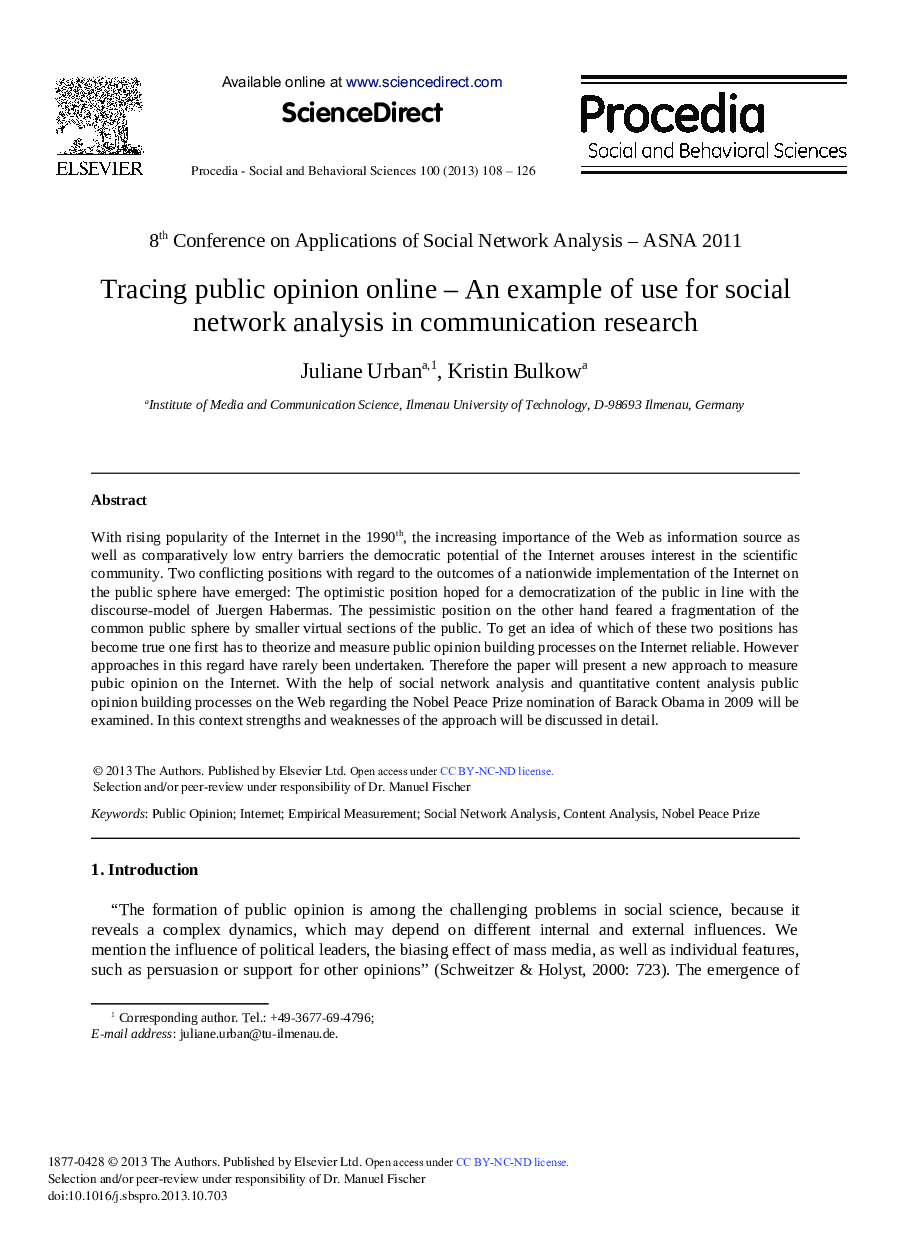| Article ID | Journal | Published Year | Pages | File Type |
|---|---|---|---|---|
| 1118400 | Procedia - Social and Behavioral Sciences | 2013 | 19 Pages |
With rising popularity of the Internet in the 1990th, the increasing importance of the Web as information source as well as comparatively low entry barriers the democratic potential of the Internet arouses interest in the scientific community. Two conflicting positions with regard to the outcomes of a nationwide implementation of the Internet on the public sphere have emerged: The optimistic position hoped for a democratization of the public in line with the discourse-model of Juergen Habermas. The pessimistic position on the other hand feared a fragmentation of the common public sphere by smaller virtual sections of the public. To get an idea of which of these two positions has become true one first has to theorize and measure public opinion building processes on the Internet reliable. However approaches in this regard have rarely been undertaken. Therefore the paper will present a new approach to measure pubic opinion on the Internet. With the help of social network analysis and quantitative content analysis public opinion building processes on the Web regarding the Nobel Peace Prize nomination of Barack Obama in 2009 will be examined. In this context strengths and weaknesses of the approach will be discussed in detail.
